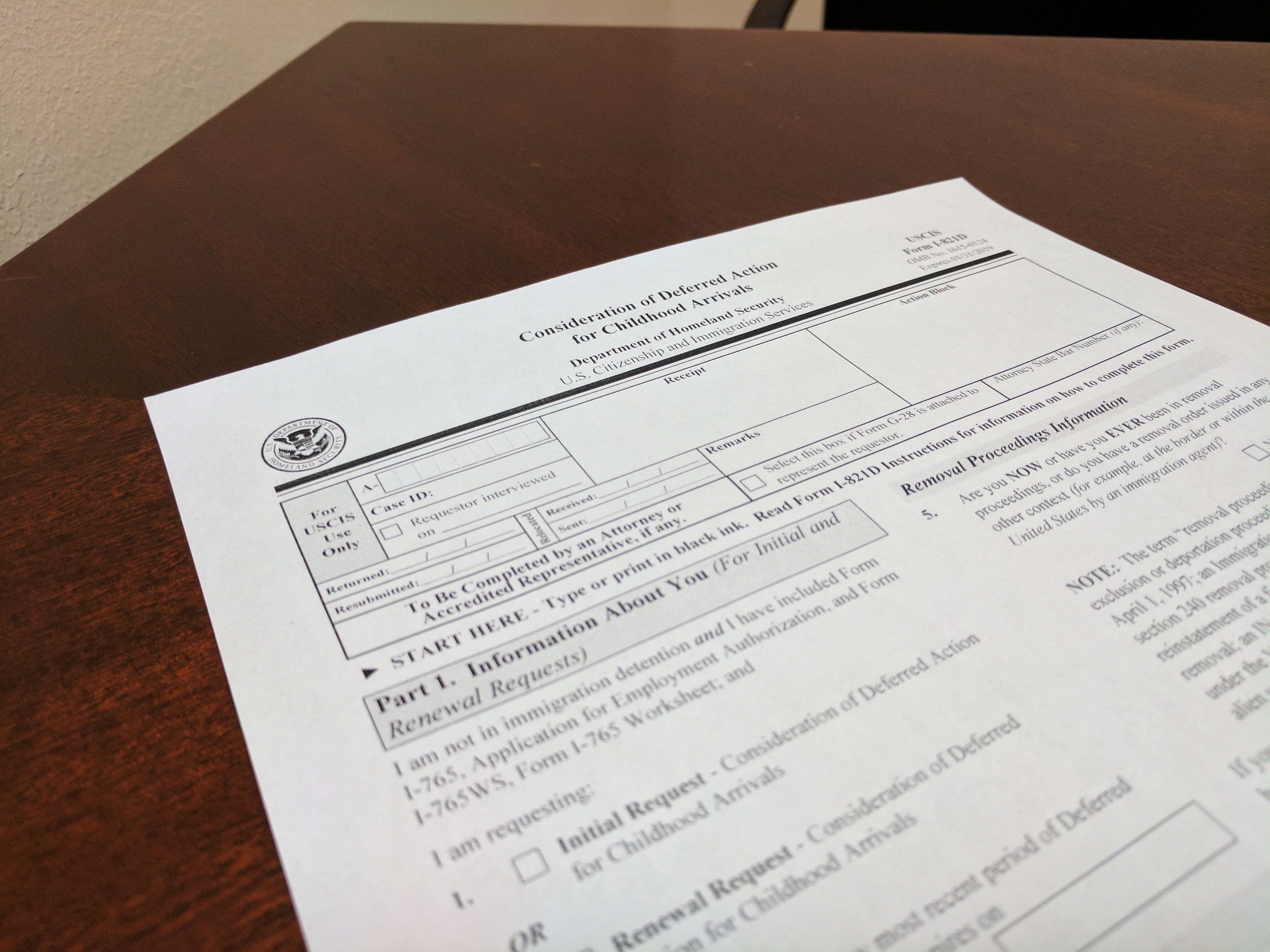What is Happening to DACA?
 What were Initial DACA, Renewal DACA, and Advance Parole on DACA under President Obama?
What were Initial DACA, Renewal DACA, and Advance Parole on DACA under President Obama?
DACA applications have been accepted since 2012 after former President Obama issued the executive order creating the program. You can find the list of requirements to apply for an initial DACA application here. Once approved, a DACA recipient is generally protected from removal for a 2-year period, and the recipients are allowed employment authorization during those 2-years. They may get a valid social security number with that work permit. 150 days before the 2-year period expires, recipients are invited to apply to renew their DACA status for another 2-years by submitting a renewal DACA application. During the time in valid DACA status, a DACA recipient also may apply for advance parole for limited specific reasons. Advance parole is a type of permission to travel outside of the U.S. to another country and ask to be allowed to return to the U.S. safely.
Should I apply for Initial DACA, Renewal DACA, or Advance Parole on DACA under President Trump?
After DACA was created, under the Obama administration, all three of these applications were being processed as intended, and all benefits were being protected. Then, President Trump ran a campaign that included anti-DACA rhetoric. He proclaimed that he would rescind Obama’s DACA orders within his first 100 days of presidency and suggested that he would commence mass deportations of undocumented immigrants. As such, Trump’s surprising election victory naturally sent all current and future DACA recipients into panic. Many expected the worst, since DACA applicants must voluntarily provide all of their personal information, including residential, employment, and contact information, to the government on the application form. The immigration community was unsure how to respond, or what was actually going to happen.
Fortunately, in the past months, the dust has settled a bit, and we are seeing the contrary to what was expected. Trump has announced that DACA “dreamers” may “rest easy,” referring to them as “incredible kids” and as a “case of heart.” To date, United States Citizenship and Immigration Services (USCIS) is still processing all three types of applications (initial DACA, renewal DACA, and DACA-based advance parole).
The future of DACA and the status of current DACA recipients is still uncertain, as it is difficult to rely on the President’s words when he flip flops on issues constantly. Meanwhile, in Congress, Senators are attempting to introduce the “BRIDGE Act” as a legislative replacement for DACA. For now, we believe the following:
Initial DACA
If Trump’s words hold true, potential initial DACA applicants should consider submitting an application. Dreamers are not being deported simply for having DACA, and initial DACA applications have continued to be approved since the start of the Trump presidency. For some applicants, it may be the only legal option they have to obtain an immigration benefit, albeit a temporary one. At the same time, it is important to be wary that this is an action that voluntarily provides personal information to the government that they would not have to otherwise. You should consult an immigration attorney if you are considering applying for DACA to confirm that there are no other factors that may put you at risk of being placed into removal proceedings.
Renewal DACA
It is generally advisable to submit a renewal application for current DACA holders. There is no real additional risk, as the government already has your personal information. However, applicants with any criminal or immigration-related issues (such as previous violations or removal orders) should be cautious and consult with an immigration attorney before applying for DACA renewal.
Advance Parole
Advance Parole (AP) is a trickier subject. USCIS is still processing and granting AP travel documents to qualified DACA applicants. Even recently, many DACA recipients have traveled successfully on AP and have returned to the U.S. lawfully. The potential problem lies during the time that the AP grantee spends outside of the U.S. If the Trump administration implements a change in policy against DACA and/or AP while the grantee is outside of the country, they may face issues upon their attempted re-entry, including refused admission. Of course, the specific consequences would depend on the particular details of the change, such as whether the new policy is effective immediately (like the first travel ban), and whether DACA would cease to exist.
There is an invaluable benefit that comes with a successful re-entry with AP – a lawful entry. Certain DACA holders who do not qualify for immigration benefits due to lack of a lawful entry may be able to proceed with an application after returning successfully with AP. Please consult with an immigration attorney to discuss these potential invaluable benefits.
Additionally, when submitting any of the applications above, the applicant may risk losing their filing fee (currently $495 for DACA; $535 for AP) if the program is terminated at any point during processing.
Please see the links below for more information:
http://www.nolo.com/legal-encyclopedia/daca-recipients-how-apply-travel-document-advance-parole.html
http://weareheretostay.org/resources/frequently-asked-questions-daca-program-in-a-trump-presidency/